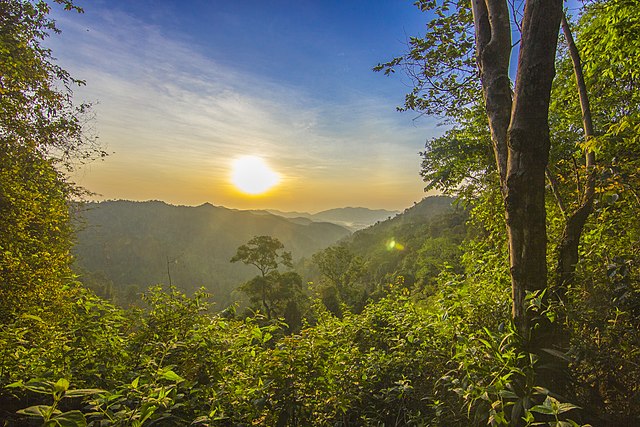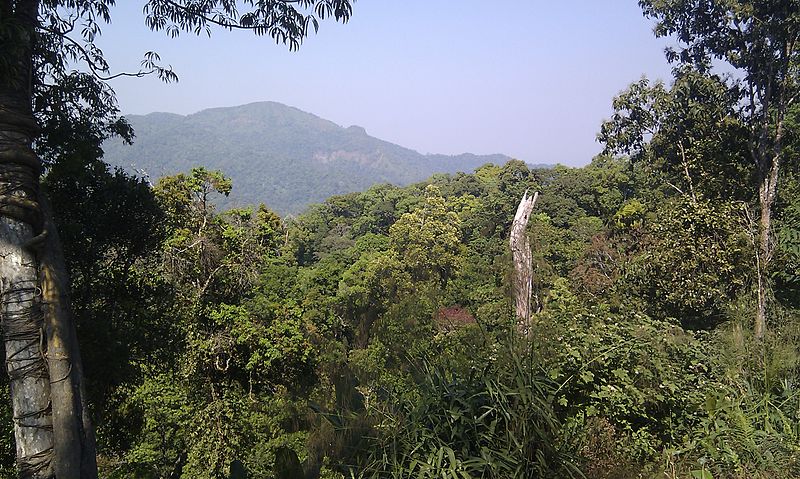
The Facebook page of the Faculty of Social Administration, Thammasat University has posted an invitation to Thammasat University students to participate in an Association of Southeast Asian Nations (ASEAN) youth speech contest on the theme of Sufficiency for Sustainability.
Tuesday, 15 September is the deadline for submitting a three minute speech video.
The Thammasat University Library collection includes many books on different aspects of sustainability.
According to the competition rules,
In the speech, contestants are required to
– Share your experiences in recognizing global challenges that need a call for action.
– Raise awareness and propose solutions to achieve the sustainable future.
– Address the impact with one of the 17 United Nations (UN) Sustainable Development Goals.
Eligibility:
Contestants must be
– Citizens of ASEAN Member States.
– Students aged between 15 and 25
Languages of Presentation.
Contestants can present a speech in English or Thai. Each contestant must apply in only one language.
The contest is part of Thailand Sustainability Expo 2020, to be held from 1 to 4 October at Samyan Mitrtown on Rama IV Rd, Wang Mai, Pathum Wan District, Bangkok, a contemporary mall & student hangout with a roof terrace, global food outlets, cinema & offices.
The UN Sustainable Development Goals (SDGs) are a collection of 17 global goals designed to be a blueprint to achieve a better and more sustainable future for all. The SDGs, set in 2015 by the United Nations General Assembly and intended to be achieved by the year 2030, are part of a UN Resolution called The 2030 Agenda.
The UN Sustainable Development Goals are as follows:
- No Poverty
- Zero Hunger
- Good Health and Well-being
- Quality Education
- Gender Equality
- Clean Water and Sanitation
- Affordable and Clean Energy
- Decent Work and Economic Growth
- Industry, Innovation and Infrastructure
- Reducing Inequality
- Sustainable Cities and Communities
- Responsible Consumption and Production
- Climate Action
- Life Below Water
- Life On Land
- Peace, Justice, and Strong Institutions
- Partnerships for the Goals
The application procedure has the first round consisting of contestants submitting a three minute speech video by 15 September 2020 at 10 p.m. Bangkok time.
Here is the application link in English and here is the application link in Thai language.
Contestants should not read from scripts, so they must either know their presentations by heart or speak about them freely, as if giving a classroom presentation ithout notes.
No animations or graphics are permitted in the speech video.
The final round of the competition will consist of shortlisted finalists presenting a five minute speech to a panel of judges on 4 October 2020 at Samyan Mitrtown, Bangkok
Final Round and Award Ceremony
The final round and award ceremony will be on 4 October 2020 at the Thailand Sustainability Expo 2020, Samyan Mitrtown, Bangkok.
Winners will be eligible for cash prizes of up to 5000 Thai baht.
For any questions, please write to askme@c-asean.org

Thailand and sustainability
As all TU students know, sustainability is a significant subject of sustained interest and concern in the Kingdom and also at Thammasat University.
According to the website of The International Labour Organization (ILO), a United Nations agency whose mandate is to advance social and economic justice through setting international labour standards, employment and environmental sustainability in Thailand show room for further development.
An Employment and Environmental Sustainability Fact Sheet notes,
Since 1990, the percentage of the population with access to improved water supply has increased 10.5 percentage points, to 97.8 per cent in 2015. There was a 6.1-percentage point increase in access to improved sanitation between 1990 and 2015, to 93 per cent (Fig. 10). Both, however, have not quite reached the ideal threshold of 100 per cent. According to a 2007 article,9 there have been improvements in waste disposal, moving from open dumping to sanitary landfilling. The survey conducted by the authors revealed a total of 425 waste disposal sites, 95 of which were landfills and 330 dumpsites. According to the World Bank, municipal solid waste generation in Thailand in 2008 was 1.76 kg per capita per day and is expected to increase to 1.95 kg per capita per day by 2025.10 The largest share of the waste in 2008 was organic (at 48 per cent), followed by paper (at 15 per cent) and plastics (14 per cent). In 2000, only 14 per cent of the waste was recycled while the 2007 article highlighted that waste sorting for recycling occurs in three stages: prior to collection (household), by crews at collection and by waste pickers at the dumpsite. Only 0.2 per cent of the country’s labour force was employed in water supply. In 2014, 75.9 per cent of the population relied primarily on clean fuel and technology, in the sense that they do not create indoor pollution within the home. The share of renewable energy in total energy consumption has generally increased. In 2000, it was nearly 22 per cent but fell to 20 per cent in 2004; it then increased to 23.6 per cent in 2014. Renewable energy generation increased from 2011 to 2014 before declining in 2015 and is dominated by bioenergy. In 2016, 100,000 people were employed in the renewable energy sector, 97 per cent of them in liquid biofuels and 3 per cent in solar photovoltaic. The country’s employment rate in the electricity, gas, steam and air conditioning sector was only 0.3 per cent in 2016. With the push for increasing reliance on renewable energy, there will be greater potential for decent job opportunities in the future.
According to an announcement posted last year on the website of the Royal Thai Embassy, Washington D.C., the United States of America,
Thailand promoting sustainability as new chair of ASEAN
The New Year brought new challenges and responsibilities for the Kingdom of Thailand with the official start of its one-year term as chair country of the ten-member Association of Southeast Asian Nations (ASEAN) as Thai leaders vowed to use the chair to promote sustainability…
In choosing sustainability as its chair-country theme, Thailand is aligning ASEAN with the United Nations and its 17 Sustainable Development Goals, or SDGs. The Kingdom intends to advance sustainability in multiple areas, but Don made a particular point about the group working in partnership to tackle climate change and protect its rich environment and natural resources.
In September 2019, the Bangkok Post reported:
The Tourism and Sports Ministry is set to build awareness among Thais about sustainable tourism after the country’s environmental management for natural resources was ranked poorly by a global agency.
The World Economic Forum’s recent Travel & Tourism Competitiveness Report 2019 ranked Thailand 31st out of 140 countries globally, up from 34th in 2017.
But in the environmental sustainability category, Thailand dropped to 130th from 122nd. For this category, Thailand received 3.6 out of seven points this year, an incremental rise from 3.57 two years ago…
Initially, the ministry will work with the Tourism Authority of Thailand (TAT) to create campaigns, probably next year, to boost understanding among locals and travellers about sustainable conservation at tourism sites.
This move was initiated by the Community-Based Tourism Promotion Network Club of the Designated Areas for Sustainable Tourism Administration (Dasta).

(All images courtesy of Wikimedia Commons)

